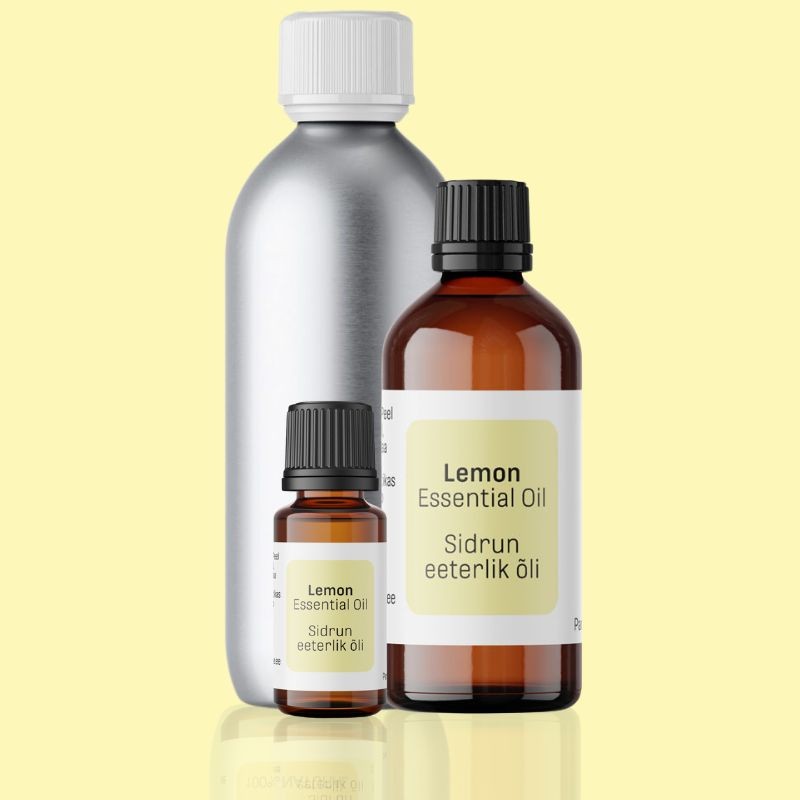



Unit price: €24.00 / 100 ml
Buy more to get a better price!
Discounts do not apply to products sold in bulk packaging (marked *), but their value is included when calculating the shopping cart discount.
When ordering outside Estonia, the amount in the calculation of the discount changes according to the change in VAT.
The fragrance of lemon essential oil is refreshing and intensely citrusy. Lemon is commonly used in aromatherapy due to its purifying and stimulating properties.
Lemon essential oil blends well with bergamot, cinnamon, lemongrass, mandarin, and tea tree essential oils to create delightful fragrances.
However, lemon essential oil has a photosensitizing effect, so it's not advisable to be exposed to direct sunlight after use. The concentration of lemon essential oil in cosmetics should not exceed 2%, and in deodorants, it should not exceed 1.28%.
INCI:Citrus Limon Peel Oil (limonene, citral, linalool).
In cosmetics, the recommended dosage is up to 2%, in deodorant 1.28%. The essential oil made from raw materials of domestic quality is also suitable for use in lip products.
In the melt-and-pour soap base, we recommend using up to 20 g per 1 kg of soap mass.
In cold process soap use 30-35 g of essential oil per 1 kg of fat. For the hot process method, use 20-25 g of essential oil per 1 kg of fat.
In soy candles, the suggested maximum dosage is When using lemon essential oil in cosmetics, it is recommended to use up to 2% of the oil. In deodorants, the suggested quantity is 1.28%. The essential oil is made from food-grade raw materials and can also be used in lip products.
For melt-and-pour soap base, it is recommended to use up to 20g of essential oil per 1kg of soap mass.
In cold process soap, use 30-35g of essential oil per 1kg of fat. For hot process soap, use 20-25g of essential oil per 1kg of fat.
When making soy candles, it is recommended to use a maximum of 6% of the essential oil.6%.
Data sheet